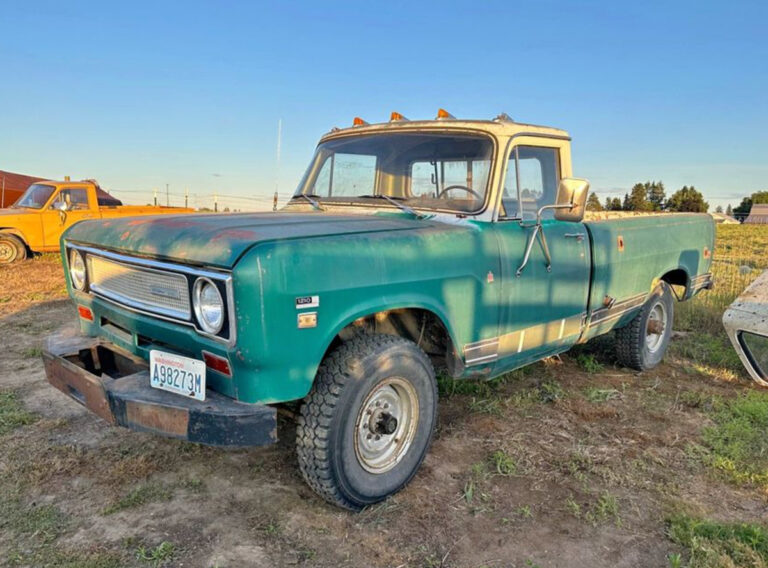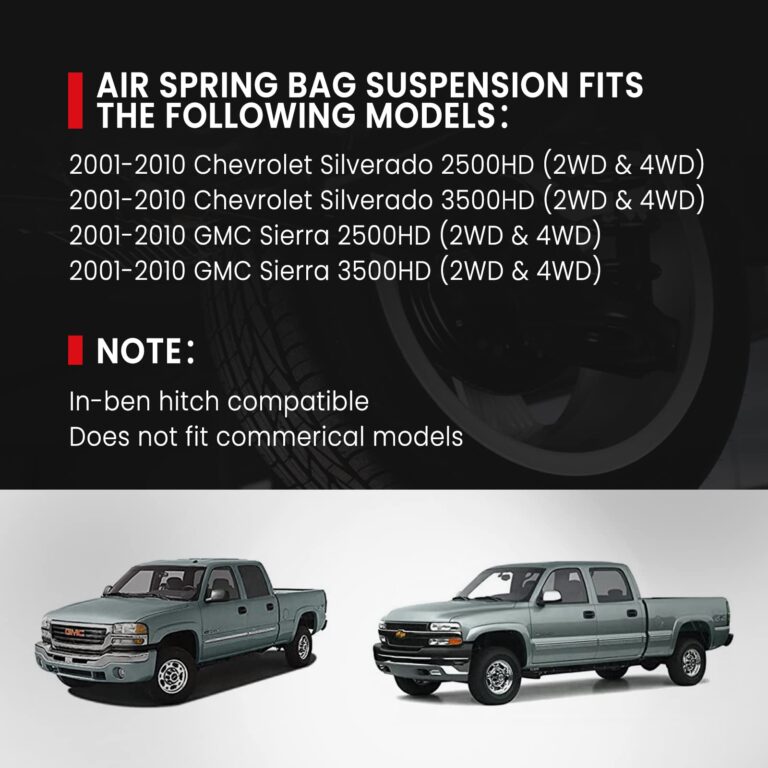All American Made Car Brands: A Comprehensive Guide to Automotive Patriotism
All American Made Car Brands: A Comprehensive Guide to Automotive Patriotism cars.truckstrend.com
In a world increasingly dominated by globalized supply chains and multinational corporations, the concept of an "All American Made" product often sparks debate and deep-seated national pride. When it comes to automobiles, this sentiment is particularly strong. For many consumers, choosing an American-made car is more than just a purchase; it’s an investment in the national economy, a nod to a rich industrial heritage, and a statement of support for domestic jobs and innovation. But what truly defines an "All American Made" car brand in the 21st century? This comprehensive guide delves into the heart of American automotive manufacturing, exploring its iconic brands, the nuances of its "made in America" label, and why these vehicles continue to hold a special place in the hearts of drivers across the nation.
What Defines "American Made" in the Automotive Industry?
All American Made Car Brands: A Comprehensive Guide to Automotive Patriotism
The term "American Made" is more complex than it appears, especially in an industry as interconnected as automotive manufacturing. It’s not simply about where the final assembly takes place, but a holistic consideration of design, engineering, research and development (R&D), and crucially, the origin of parts. While a car might be assembled in the United States, its components could be sourced from dozens of countries worldwide.
Several key factors contribute to a vehicle’s "American-made" status:
- Headquarters and Ownership: Is the parent company headquartered in the U.S.? This is often the first indicator, though not the sole determinant.
- Assembly Location: Where is the vehicle physically put together? Many foreign brands also operate large assembly plants in the U.S., employing thousands of American workers.
- Domestic Parts Content: This is perhaps the most critical and measurable factor. The percentage of a vehicle’s parts that originate from the U.S. and Canada is often tracked. Organizations like the Kogod School of Business at American University publish an "American-Made Index" (AMI) that ranks vehicles based on a comprehensive set of criteria, including R&D, engine and transmission production, body, chassis, and electrical components, and capital investment. A high domestic parts content signifies a deeper commitment to U.S. manufacturing.
- Research & Development (R&D): Where are the vehicle’s designs, engineering, and technological innovations primarily developed? Significant R&D investment in the U.S. indicates a strong domestic footprint.

Understanding these distinctions is crucial for consumers who genuinely wish to support "All American Made" car brands, as it goes beyond simple brand perception to measurable economic impact.
The Big Three and Beyond: Core American Car Brands
When discussing American car brands, the traditional "Big Three" immediately come to mind. These companies have shaped the automotive landscape for over a century, embodying American innovation, power, and design. However, the landscape has evolved, with new players emerging to redefine American manufacturing.
1. General Motors (GM)
Headquartered in Detroit, Michigan, General Motors is a global automotive giant with a deeply rooted American heritage. Its portfolio of brands includes:
- Chevrolet: The quintessential American brand, known for its diverse lineup ranging from reliable family sedans (Malibu) and powerful sports cars (Corvette, Camaro) to segment-defining trucks (Silverado) and SUVs (Tahoe, Suburban). Chevrolet is a workhorse brand, appealing to a broad spectrum of American consumers.
- GMC: Focusing primarily on premium trucks and SUVs, GMC offers more upscale and rugged alternatives to their Chevrolet counterparts (Sierra, Yukon). They often share platforms but differentiate with unique styling, features, and higher trim levels.
- Cadillac: America’s luxury brand, Cadillac has a long history of innovation and opulence. While it once struggled to compete with European and Asian luxury marques, it has undergone a significant resurgence, particularly with its performance-oriented V-series models and a strong push into electric vehicles (Lyriq).
- Buick: Positioned as an attainable luxury brand, Buick emphasizes comfort, quietness, and sophisticated styling. Its current lineup consists primarily of popular crossovers and SUVs (Encore, Envision, Enclave), appealing to families and those seeking refinement without the top-tier luxury price tag.
GM is heavily invested in the future of electric vehicles (EVs), with its Ultium battery platform poised to power a wide range of upcoming models across all its brands, solidifying its commitment to American manufacturing in the EV era.
2. Ford Motor Company
Another titan of American industry, Ford, based in Dearborn, Michigan, boasts a legacy intertwined with the very fabric of American mobility.
- Ford: The brand that put the world on wheels with the Model T, Ford continues to be a powerhouse. Its F-Series trucks have been America’s best-selling vehicle for decades, a testament to their utility, capability, and enduring appeal. Beyond trucks, Ford offers popular SUVs (Explorer, Escape, Bronco) and the iconic Mustang, a symbol of American performance and freedom. Ford is also a leader in the EV transition, with popular models like the Mustang Mach-E and F-150 Lightning demonstrating its commitment to an electrified future built in America.
- Lincoln: Ford’s luxury division, Lincoln, aims for a refined, serene, and distinctly American luxury experience. Their lineup of elegant SUVs (Navigator, Aviator, Corsair) emphasizes comfort, advanced technology, and a sophisticated design aesthetic, differentiating them from European and Asian luxury competitors.
Ford’s commitment to U.S. manufacturing is evident in its numerous assembly plants across the country, producing many of its best-selling vehicles domestically.
3. Stellantis (formerly FCA US LLC)
Formed from the merger of Fiat Chrysler Automobiles (FCA) and PSA Group, Stellantis operates its North American headquarters in Auburn Hills, Michigan. Its American brands retain strong, distinct identities:
- Chrysler: Once a broad-ranging brand, Chrysler now focuses on minivans (Pacifica) and, for a time, a large sedan (300). The Pacifica, especially its hybrid variant, showcases American family utility and innovation.
- Dodge: Synonymous with American muscle, Dodge specializes in high-performance vehicles (Charger, Challenger) that embody raw power and aggressive styling. While its future is evolving, Dodge remains committed to delivering adrenaline-fueled driving experiences.
- Jeep: Perhaps the most globally recognized American brand, Jeep is the undisputed leader in SUVs and off-road capability. From the iconic Wrangler to popular family haulers like the Grand Cherokee and Wagoneer, Jeep vehicles are designed for adventure and rugged utility, often built in the U.S.
- Ram: Spun off from Dodge, Ram has established itself as a dedicated truck brand known for its powerful engines, comfortable interiors, and robust towing capabilities. Ram trucks (1500, 2500, 3500) consistently challenge the F-Series and Silverado for sales dominance, with significant U.S. production.
Stellantis leverages its American plants for the production of many of its most popular and profitable vehicles, particularly trucks and SUVs.
4. Tesla
A relatively new but profoundly impactful player, Tesla, headquartered in Austin, Texas, has revolutionized the automotive industry with its singular focus on electric vehicles.
- Tesla: From its inception, Tesla has committed to building its vehicles in the U.S., with Gigafactories in California, Texas, and Nevada (for batteries and components). Models like the Model 3, Model Y, Model S, and Model X are designed, engineered, and assembled domestically, making Tesla a truly "All American Made" EV brand. Its innovative technology, long-range capabilities, and extensive Supercharger network have propelled it to the forefront of the EV market.
5. Emerging American Brands (Lucid, Rivian)
Beyond the established giants, new American manufacturers are emerging, particularly in the EV space, demonstrating continued innovation:
- Lucid Motors: Headquartered in Newark, California, Lucid produces the luxury Lucid Air sedan at its Arizona factory. It aims to combine groundbreaking EV technology with unparalleled luxury and performance.
- Rivian: Based in Irvine, California, Rivian manufactures its electric trucks (R1T) and SUVs (R1S) at a former Mitsubishi plant in Illinois. Rivian focuses on adventure and utility, catering to outdoor enthusiasts.
These brands represent the ongoing evolution and diversification of American automotive manufacturing.
Why Choose an American Made Car? Benefits and Considerations
The decision to purchase an American-made car carries several compelling benefits, alongside some important considerations in today’s global market.
Benefits:
- Economic Impact: Buying American directly supports domestic jobs in manufacturing, engineering, design, and related industries (parts suppliers, dealerships). This investment stimulates local economies and contributes to the nation’s GDP.
- Innovation and Design Tailored to American Preferences: American car brands often design vehicles with the specific needs and preferences of American consumers in mind – from larger interior spaces and powerful engines to robust towing capabilities and advanced infotainment systems.
- Durability and Performance: Historically, American vehicles, particularly trucks and SUVs, have been renowned for their rugged durability and strong performance, designed to handle diverse American landscapes and demanding tasks.
- Widespread Service and Parts Availability: With extensive dealer networks and established supply chains, American brands typically offer readily available parts and widespread service centers, simplifying maintenance and repairs.
- National Pride: For many, owning an American-made vehicle is a source of pride, representing a connection to national industrial heritage and a vote of confidence in domestic craftsmanship.
Considerations:
- Globalized Supply Chains: No modern car is 100% domestic. Even "American" brands rely on global supply chains for various components, making the "American-made" label a matter of degree rather than absolute purity.
- Intense Competition: American brands face fierce competition from foreign brands (e.g., Toyota, Honda, Hyundai, BMW, Mercedes-Benz) that also manufacture a significant number of vehicles in the U.S., employing American workers.
- Perception vs. Reality: Some consumers may hold outdated perceptions about the quality or features of American cars compared to foreign rivals. However, American brands have made significant strides in quality, technology, and design.
- Transition to EVs: The automotive industry is in a massive transition to electric vehicles. American brands are investing heavily, but this shift presents challenges in retooling factories, developing new battery technologies, and competing with established EV players and emerging startups.
Navigating Your Purchase: Practical Advice for Buying American
If you’re committed to buying an American-made car, here’s some practical advice to guide your decision:
- Define Your Needs: Determine what type of vehicle best suits your lifestyle (sedan, truck, SUV, EV), your budget, and your priorities (fuel efficiency, cargo space, performance, technology).
- Research "American-ness": Don’t just rely on brand name. Consult resources like the Kogod School of Business’s American-Made Index or check the VIN (Vehicle Identification Number) to identify the country of origin for assembly. While not exhaustive, these tools offer insights into domestic content.
- Explore All American Brands: Look beyond the traditional Big Three. Consider Tesla, Lucid, or Rivian if an EV is in your future. Each brand offers unique strengths and product lineups.
- Test Drive Extensively: Schedule test drives for several models from different American brands. Pay attention to comfort, driving dynamics, features, and overall feel.
- Compare Models and Features: Once you’ve narrowed down your choices, compare specific models head-to-head on features, safety ratings, fuel economy (or range for EVs), and total cost of ownership.
- Understand Financing and Incentives: Research available financing options, manufacturer incentives, and potential tax credits for EV purchases.
- Consider Resale Value and Maintenance: Look into the expected resale value of the models you’re considering. Also, factor in the cost and availability of maintenance and parts.
- Visit Dealerships: Engage with dealership staff to understand their service offerings and ask questions about specific models.
By taking these steps, you can make an informed decision that aligns with your desire to support American manufacturing while meeting your personal automotive needs.
Price Table: Representative Starting MSRPs for All American Made Car Brands
It’s important to note that specific model pricing varies greatly based on trim level, options, and market conditions. This table provides a general representative starting MSRP range for common models within each brand, offering a snapshot of their market positioning. Prices are approximate and subject to change.
| Brand Name | Parent Company | Primary Vehicle Types | Typical Starting MSRP Range (Approx.) | Key Differentiating Factor / Flagship Model |
|---|---|---|---|---|
| Chevrolet | General Motors | Sedans, Trucks, SUVs, EVs, Performance | $25,000 – $80,000+ | Versatile lineup, Silverado, Corvette |
| GMC | General Motors | Premium Trucks, SUVs | $35,000 – $90,000+ | Professional Grade, Sierra, Yukon Denali |
| Cadillac | General Motors | Luxury Sedans, SUVs, EVs, Performance | $45,000 – $110,000+ | American Luxury, Escalade, Lyriq |
| Buick | General Motors | Attainable Luxury Crossovers/SUVs | $28,000 – $55,000+ | QuietTuning, Enclave |
| Ford | Ford Motor Co. | Trucks, SUVs, Performance, EVs, Commercial | $28,000 – $85,000+ | America’s Best-Selling F-Series, Mustang |
| Lincoln | Ford Motor Co. | Luxury SUVs | $50,000 – $100,000+ | Quiet Flight Luxury, Navigator |
| Chrysler | Stellantis | Minivans, Sedans | $35,000 – $60,000+ | Family-focused, Pacifica Hybrid |
| Dodge | Stellantis | Muscle Cars, SUVs | $32,000 – $90,000+ | American Muscle, Challenger, Charger Hellcat |
| Jeep | Stellantis | SUVs, Off-Road | $30,000 – $100,000+ | Unparalleled Off-Road, Wrangler, Grand Cherokee |
| Ram | Stellantis | Trucks | $38,000 – $85,000+ | Tough & Capable, Ram 1500, TRX |
| Tesla | Tesla, Inc. | EVs (Sedans, SUVs, Cybertruck) | $40,000 – $130,000+ | EV Pioneer, Model 3, Model Y |
| Lucid | Lucid Motors | Luxury EVs | $70,000 – $180,000+ | Longest Range EV, Lucid Air |
| Rivian | Rivian Automotive | Electric Trucks, SUVs | $75,000 – $95,000+ | Adventure EVs, R1T, R1S |
(Note: Prices are starting MSRPs and can vary significantly based on trim, options, and market fluctuations. Tax credits for EVs may also apply.)
Frequently Asked Questions (FAQ)
Q: What truly defines an "American-made" car?
A: An "American-made" car is generally understood to be one designed, engineered, and assembled in the U.S., with a significant percentage of its parts sourced from the U.S. and Canada. It’s a spectrum, not a binary, with indexes like the Kogod School of Business’s American-Made Index providing detailed rankings.
Q: Are all cars from Ford, GM, and Stellantis made in America?
A: No, not all models from these parent companies are made in America. While a significant portion of their most popular models (especially trucks and SUVs) are built in the U.S., they also have manufacturing plants globally and import some models or components. Always check the VIN or resources like the AMI for specific models.
Q: Are Tesla cars truly American-made?
A: Yes, Tesla vehicles (Model S, 3, X, Y) are primarily designed, engineered, and assembled in the U.S. at their Gigafactories in California, Texas, and Nevada (for batteries/components), giving them a very high "American-made" content.
Q: Do foreign brands build cars in the US? Are they considered "American-made"?
A: Many foreign brands like Toyota, Honda, BMW, Mercedes-Benz, Hyundai, and Kia operate large assembly plants in the U.S., employing thousands of American workers and sourcing a good portion of their parts domestically. While they contribute significantly to the U.S. economy and jobs, their ultimate ownership and global R&D often reside outside the U.S., distinguishing them from "All American Made Car Brands" in the purest sense. However, many of their U.S.-built models rank highly on American-made indexes.
Q: What are the benefits of buying an American-made car?
A: Key benefits include supporting domestic jobs and the U.S. economy, benefiting from designs often tailored to American preferences, readily available parts and service, and a sense of national pride.
Q: Where can I find information on how "American" a car is?
A: The most reputable source is the "Made in America Auto Index" published annually by the Kogod School of Business at American University. This index provides detailed rankings based on multiple criteria, including R&D, labor, and parts content.
Conclusion
The landscape of "All American Made Car Brands" is dynamic and evolving, yet its core identity remains rooted in innovation, resilience, and a deep connection to the American way of life. From the iconic trucks that built America to the cutting-edge electric vehicles shaping its future, brands like Chevrolet, Ford, Ram, Jeep, Cadillac, and Tesla continue to demonstrate the prowess of domestic manufacturing. Choosing an American-made vehicle today means more than just purchasing a car; it’s a conscious decision to invest in the nation’s economic strength, support local communities, and champion the spirit of American ingenuity. As the automotive industry charges forward into an electrified and technologically advanced era, American car brands are poised to lead the charge, ensuring that the roar of a powerful engine or the silent glide of an electric motor will continue to carry the proud legacy of "Made in America."





